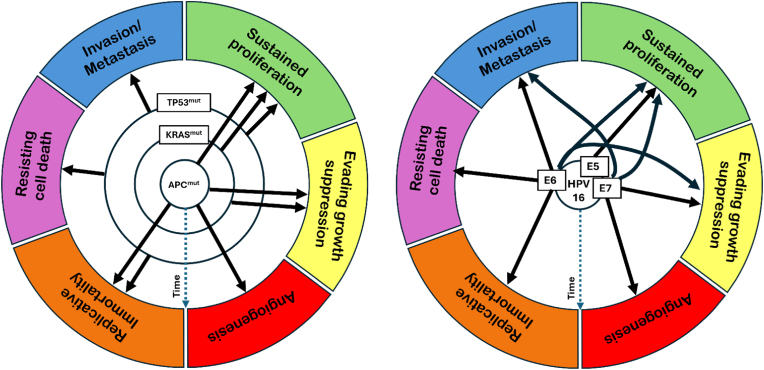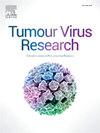迅速发生癌症。
IF 8.1
Q1 VIROLOGY
引用次数: 0
摘要
人类癌症通常被认为是在几十年的过程中形成的。这种缓慢的进展在我们称为“慢发”癌症的各种癌症中都有充分的记录。相比之下,“快速发作”的癌症在人类身上可以在几个月内发展,在老鼠身上可以在短短9天内发展。这些癌症通常在可能加速癌症发展的条件下发展:早期发展,免疫缺陷或病毒感染。我们将在“癌症特征”的背景下讨论快速发作的癌症——细胞必须获得的特性才能变成恶性的——重点关注病毒如何特别适合引起快速发作的癌症。本文章由计算机程序翻译,如有差异,请以英文原文为准。

Rapid-onset cancer
Human cancers are generally thought to develop over the course of decades. Such slow progression is well documented for a variety of cancers that we designate “slow-onset” cancers. “Rapid-onset” cancers, in contrast, can develop in a matter of months in humans or in as little as 9 days in mice. These cancers often develop under conditions that might be expected to accelerate cancer development: early development, immune deficiency, or viral infection. We will discuss rapid-onset cancers in the context of the "hallmarks of cancer" – properties cells must acquire in order to become malignant – focusing on how viruses are particularly well suited to causing rapid-onset cancer.
求助全文
通过发布文献求助,成功后即可免费获取论文全文。
去求助
来源期刊

Tumour Virus Research
Medicine-Infectious Diseases
CiteScore
6.50
自引率
2.30%
发文量
16
审稿时长
56 days
 求助内容:
求助内容: 应助结果提醒方式:
应助结果提醒方式:


